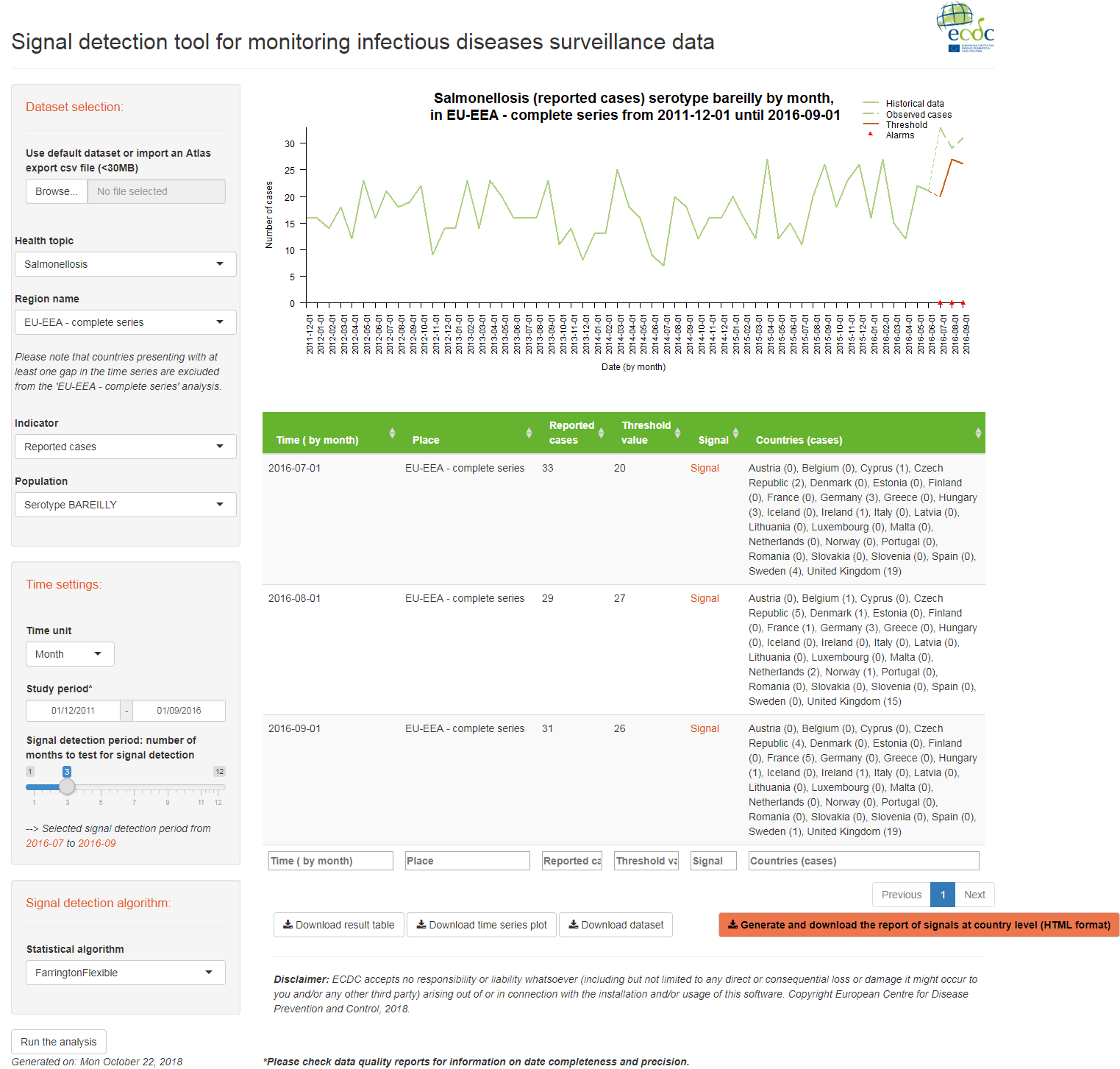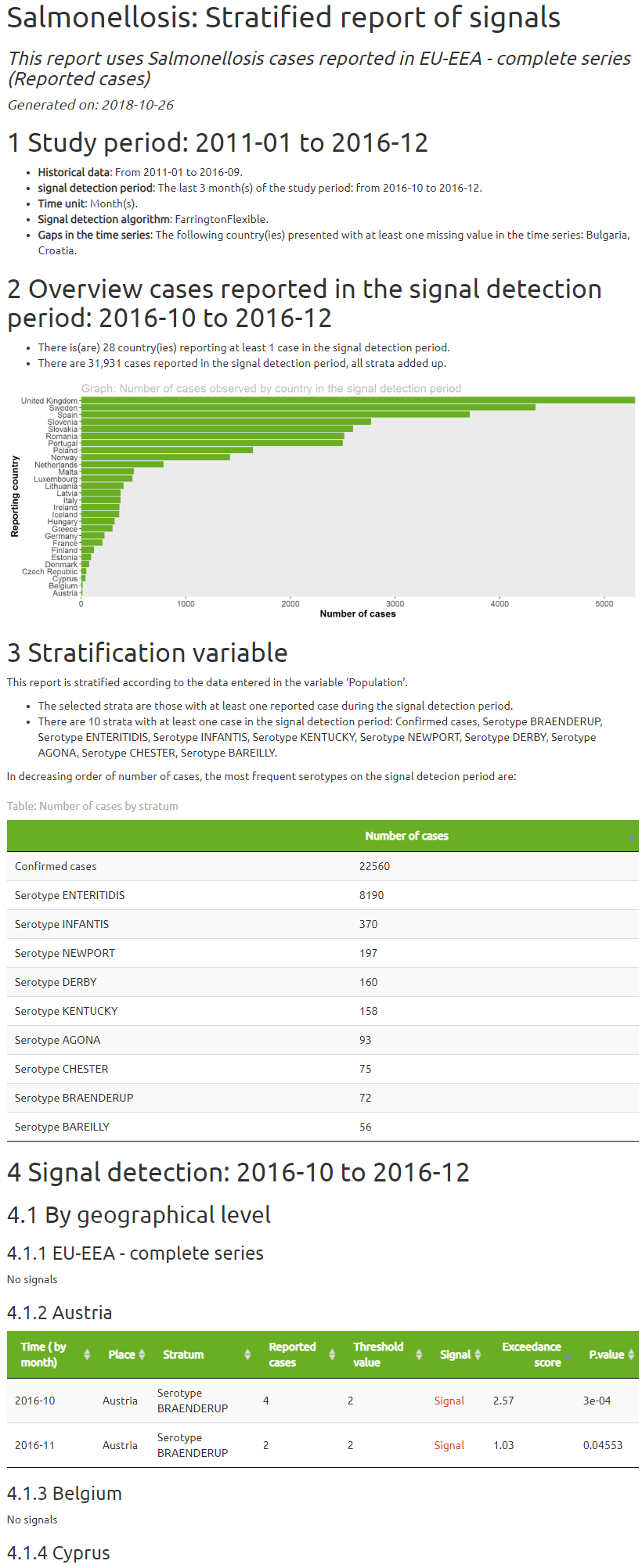Description
Signal Detection Analysis.
Description
Exploring time series for signal detection. It is specifically designed to detect possible outbreaks using infectious disease surveillance data at the European Union / European Economic Area or country level. Automatic detection tools used are presented in the paper "Monitoring count time series in R: aberration detection in public health surveillance", by Salmon (2016) <doi:10.18637/jss.v070.i10>. The package includes: - Signal Detection tool, an interactive 'shiny' application in which the user can import external data and perform basic signal detection analyses; - An automated report in HTML format, presenting the results of the time series analysis in tables and graphs. This report can also be stratified by population characteristics (see 'Population' variable). This project was funded by the European Centre for Disease Prevention and Control.
README.md
'EpiSignalDetection' package
European Centre for Disease Prevention and Control (ECDC)
Description
The 'EpiSignalDetection' package allows the user to explore time series for signal detection. It is specifically designed to detect possible outbreaks using infectious disease surveillance data at the European Union / European Economic Area or country level.
The package includes:
- Signal Detection tool (Fig.1) an interactive 'shiny' application in which the user can import external data and perform basic signal detection analyses;
- An automated report (Fig.2) in HTML format, presenting the results of the time series analysis in tables and graphs. This report can also be stratified by population characteristics (see 'Population' variable).
Fig.1 Signal detection tool for monitoring infectious diseases in TESSy
Fig.2 Report of alarms
...